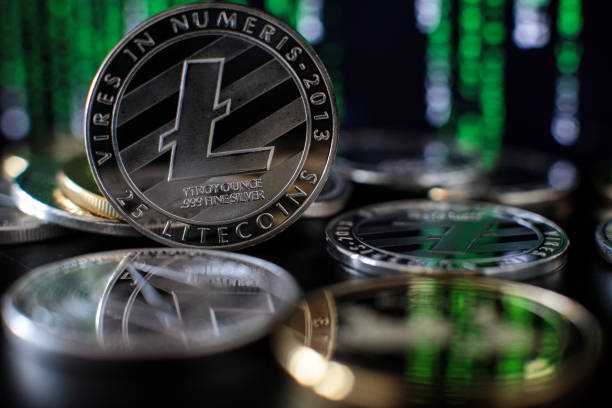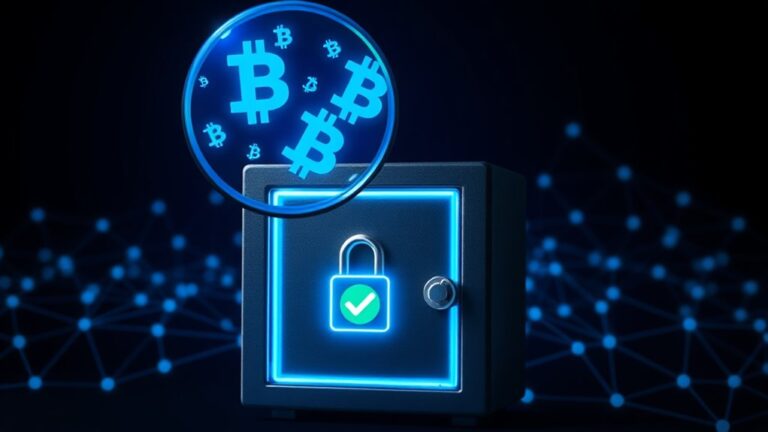Data Management in Crypto
Note: This post may contain affiliate links, and we may earn a commission (with No additional cost for you) if you make a purchase via our link. See our disclosure for more info. The crypto world is constantly changing. This content is for informational purposes only and not financial, legal, or professional advice So, please verify the info on the cryptocurrency provider’s websites.
Data management in crypto? It's essential, folks. Think of it as the glue holding everything together. Solid frameworks prevent chaos, while access controls stop unauthorized peeks at sensitive info. You want reliable data? Quality checks are a must. And let's not forget security measures: encrypt that data, back it up, and control access like it's your secret stash. It's a wild digital world out there, and managing data right can mean the difference between success and disaster. Curious for more?

In the ever-evolving world of crypto, data management isn't just important; it's absolutely vital. Think about it: data is the backbone of everything in this digital jungle. If you don't have a solid framework, you're basically walking around with a giant "hack me" sign on your back. Data stewardship is essential. Appointing specific owners for data keeps things accountable and consistent. Without that, it's like herding cats.
Access controls are another must-have. If you don't regulate who can see what, expect chaos. Security matters, folks. Encryption, backups, and restricted access are the holy trifecta for protecting sensitive crypto data. And let's not forget quality standards. Verification processes guarantee your datasets are accurate, complete, and reliable. Because, let's be real, who wants to deal with garbage data?
Access controls are non-negotiable—secure your crypto data with encryption, backups, and quality standards to avoid chaos and garbage data.
Blockchain technology is a game-changer, with features like decentralization that wipe out single points of failure. Immutability keeps records tamper-proof; you can't just go back and change the score. Plus, consensus mechanisms and encryption keep transactions secure. Transparency? Absolutely. Everyone can see the transaction histories. That's a double-edged sword—great for trust, but also for scrutiny. Additionally, transparency allows visibility of all transactions to network participants, fostering a culture of accountability.
Implementing blockchain isn't just a walk in the park, though. First, define your objectives. What are you even trying to achieve? Then, assess feasibility; check your infrastructure and budget. Choosing the right platform is vital. Public or private? Know your needs. Using hardware wallets for cold storage can significantly enhance security when implementing blockchain solutions.
Secure data management brings a range of benefits. Decentralized storage? That means lower breach risks. Immutable records? No unauthorized changes allowed. Real-time updates? Everyone's in the loop. Additionally, ensuring regulatory compliance requires clear policies on customer data collection, usage, and sharing, with regular reviews for adherence to laws.
But challenges loom large. Integrating blockchain with existing systems can feel like fitting a square peg in a round hole. Security and privacy? Always a concern. The future is bright, but it's also complicated. So, buckle up!
Frequently Asked Questions
How Does Blockchain Ensure Data Integrity in Cryptocurrency Transactions?
Blockchain guarantees data integrity in cryptocurrency transactions through a nifty combination of cryptographic security and consensus mechanisms.
Each transaction is locked tight with a unique hash, making tampering almost laughably difficult. Plus, every participant on the network has a say—good luck altering anything without everyone knowing.
Timestamping adds a nice touch of authenticity, while transparent audit trails keep everything in check.
It's like a digital fortress where trust isn't just a word—it's built in.
What Are the Risks of Poor Data Management in Crypto?
Poor data management in crypto? A recipe for disaster.
Imagine linking wallet addresses to real identities—hello, identity theft!
Then there's the immutable data on blockchains; once it's out there, it's there forever.
Can't fix that oopsie!
Transaction histories are like open books, exposing users' financial secrets.
And let's not forget the insecure key storage—who doesn't love a good hack?
It's chaos, really. Just another day in the wild west of digital currency.
Can Data Be Deleted From a Blockchain?
Can data be deleted from a blockchain? Well, not really. Once something is locked in, it's like a bad tattoo—permanent.
Sure, there are some fancy tricks like local erasure, but it's not exactly a magic wand. You can't just hit delete.
Legal issues pop up too, especially with privacy laws. So, if you thought blockchain was all about freedom, think again.
It's more like a commitment you can't escape from.
How Do Privacy Coins Handle Data Management Differently?
Privacy coins, like Monero and ZCash, play by their own rules. They hide sender and receiver identities, making transactions nearly untraceable.
Forget about your average transaction; these coins use fancy tricks like ring signatures and stealth addresses. It's all about keeping secrets—your data stays safe from prying eyes.
But hey, it's not all sunshine and rainbows. Regulatory bodies aren't thrilled, and illicit use? Yeah, that's a major red flag.
What Tools Are Available for Effective Crypto Data Management?
When it comes to crypto data management, the options are plentiful.
There's CryptoQuant for metrics and Nansen for tracking insights. Token Metrics throws in AI for good measure.
Need security? Amberdata's got you covered. For portfolio tracking, CoinStats and CoinTracking are solid picks.
Sure, it's a jungle out there, and maneuvering these tools can be a headache. But hey, at least there's no shortage of choices—just a shortage of clarity!











